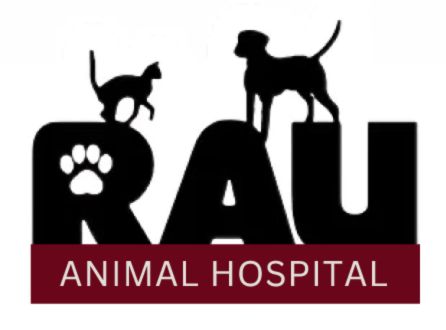Diarrhea - let's just agree upfront that this is an unpleasant topic. Unfortunately, it's one that we see in pets at veterinary clinics every day, and while the root cause can be relatively harmless, that's not always the case. This blog post will look at what may be causing your dog's diarrhea and how serious the implications are in each case.
Dog Diarrhea Causes
Dog Diarrhea Causes - Parvo
Parvo is a very contagious viral diarrhea of young, unvaccinated puppies. Parvovirus attacks rapidly dividing cells like those that line the intestines and those that fight infections. So not only does parvo cause severe bloody dog diarrhea, but it also makes puppies susceptible to bacterial infection. Dog diarrhea caused by parvo is often profound and debilitating, requiring intensive care hospitalization.
Untreated, survival from parvo is less than 25%. With intensive veterinary care, including several days (and hundreds of dollars worth) of intensive care, including antiviral drugs, antibiotics, and fluids, survival can approach 75%.
Parvo is easily prevented with a series of inexpensive, VERY effective vaccines. As long as a puppy drinks their mother’s milk within the first 12-24 hours after birth, most puppies receive a dose of antibodies from the mother that protects the puppy against parvo for the first 2-3 months of life. Starting at between 6-8 weeks, we give parvo vaccine, boostering the vaccine every three weeks until the dog is at least 12-16 weeks old.
Dog Diarrhea Causes - Worms
Common veterinary intestinal parasites include roundworms, hookworms, whipworms, tapeworms, giardia, and coccidia. All of these can be detected through routine stool sample screening, so it’s often critically important that you bring a stool sample with you to every dog diarrhea appointment.
Parvo and Worms – Separating Fact From Fiction
FICTION: “Parvo has a distinctive smell. In fact, if a puppy with diarrhea DOESN’T smell a certain way, he doesn’t have Parvo”.
FACT: Oh, if only life were that simple. The scent generally associated with parvo is caused by blood in the stool. Dogs with bloody stools because of hookworms have precisely the same smell. MORE IMPORTANTLY, if a puppy is diagnosed with Parvo BEFORE there is blood in the stool, the antivirals' effectiveness is MUCH GREATER. Did you know Parvo can be cured with antivirals if we catch it soon enough?
FICTION: “I don’t see any worms in her poop, so, therefore, she doesn’t have worms."
FACT: Adult worms intend to stay inside the body. The only time you see part of a worm outside the body is either if a) the worm excreted part of its body on purpose – like the crawling egg sacs of the dog tapeworm, which are not really the worm itself, only bags of eggs, the adult is still inside, or b) if the entire worm is dead and passes in the stool because of deworming! Roundworm, hookworm, and whipworm adults stay in the body and release only MICROSCOPIC EGGS in the stool, which can only be found by sending the poop to the lab. Giardia and coccidia aren’t even really worms; they are microscopic organisms.
FICTION: “My breeder dewormed her; therefore, there is no way my dog can have worms."
FACT: Most worms take about three weeks to develop from an egg into an adult, and all dewormers kill only the adults. So, first of all, puppies require a SERIES of dewormings to ensure we get any worm that was still an egg on the day of presentation. More importantly, though, the yellow stuff breeders give puppies that they got from the feed store is only effective against roundworms and hookworms, and only if given in series, but doesn’t treat whipworms, giardia, tapeworms or coccidia, any of which can make a puppy sick.
FICTION: “Parvo is the only potentially deadly diarrhea disease of puppies. If it’s not parvo, your dog will be fine.”
FACT: The harsh reality is that dogs can bleed out from hookworm infestation and even starve from overwhelming roundworms. They can also develop debilitating, dehydration-inducing illnesses and die from coccidia. We know this is hard to read, but these things do happen.
FICTION: “Blood in a dog’s stool is really bad, isn’t it?! He must be REALLY sick!”
FACT: This fiction is a little counter-intuitive. BLOOD IN THE STOOL DOES NOT AUTOMATICALLY MEAN PARVO. That being said, blood in your dog's stool is typically bad news. However, dogs and cats have a peculiar habit of dripping little bits of blood from their rectum after prolonged episodes of diarrhea, likely from the straining and inflammation present within the diarrhea-laden intestines.
Dog Diarrhea Causes – Garbage Guts, Food Poisoning, and Stress
Stress in dogs, be it from anxiety, too much excitement, good stress, or bad stress causes a change in the normal intestinal bacteria or “normal flora” in the gut. Bacterial flora changes from stress are essentially the same as those caused by food poisoning, including Salmonella and E. coli in dogs.
Every animal, every human, and dog has a ton of intestinal bacteria in our gut. These bacteria are intimately involved in the digestion and absorption of our food. In the case of dogs, especially, when the intestinal bacteria get used to digesting one particular brand of kibble, any change in what you feed those bacteria can cause diarrhea and a change in the bacterial population. When the population of bacteria changes, then a dog might no longer be able to properly digest the same diet she used to. Diarrhea from an intestinal bacterial shift can last days or even weeks.
Veterinarians “reset” the normal intestinal flora in dogs with three steps:
Antibiotics – that stay in the gut eliminating inappropriate bacteria
Probiotics – that repopulate the gut with friendly bacteria
Prescription intestinal food – that the above probiotic bacteria can easily digest
Remedies For Diarrhea in Dogs
Antibiotics – are prescription drugs and should be obtained from your veterinarian. Please do not try to order antibiotics online.
Probiotics – can sometimes be purchased from pet stores but are often less effective than veterinary supplements that use proprietary strains of bacteria. We used to recommend yogurt more often for diarrhea in dogs, but it turns out the Acidophilus bacteria, good for human digestion, found in human yogurt, are not the best bacteria for dog digestion. They’re better than nothing, but they’re not the best. Veterinary probiotics that are more effective contain other bacteria, like the Enterococcus faecium found in Fortiflora, or the Bifidobacterium animalis found in Prostora Max Canine.
Bland diet – this is where you can really help at home! Most veterinarians will recommend a very common bland diet consisting of cooked rice and a fat-free protein like fat-free cottage cheese, cooked skinless, boneless chicken breast, or boiled 95% fat-free ground beef.
DO NOT FEED BLAND DIET FOR MORE THAN 48 hours without a veterinary consultation, as ongoing diarrhea can lead to dehydration.
When should you take a dog with diarrhea to the veterinarian?
Great question! Ideally, you should at least phone your veterinarian to notify them of your dog’s problem immediately, even if you don’t intend to rush your pet in. The reason is, we can document the problem, keep track of the frequency of the problem, and guide you with personalized advice.
What about Imodium or Pepto Bismol for diarrhea in dogs?
Do not give your dog any human medications without direct veterinary discussion. Yes, there are lists online that will give you what look like perfectly good prescribed doses for Imodium and Pepto Bismol, some of which might not hurt your dog. Or, they might mask the symptoms of a more severe disease or cause a stomach ulcer far worse than the diarrhea you’re treating. Stick to the above home remedies of a bland diet and probiotics until you can contact your family veterinarian.
Take your diarrhea dog to the veterinarian immediately if…
- Your dog is otherwise happy and tail wagging, but diarrhea continues for more than 48 hours.
- Your dog acts sick along with diarrhea – lethargy, decreased appetite, vomiting.
- There are more than a few spots of blood (some dogs will pass a few drops of blood from straining that aren’t a big deal – use common sense and your best judgment here)
- Your dog has a fever (normal body temperature is up to 102.5F)
Diarrhea is no fun to deal with as a pet parent, but, as you've read, it can have serious implications beyond being an inconvenience. If you're wondering whether to take your dog to the veterinarian for diarrhea, please call us. We're here to help.

